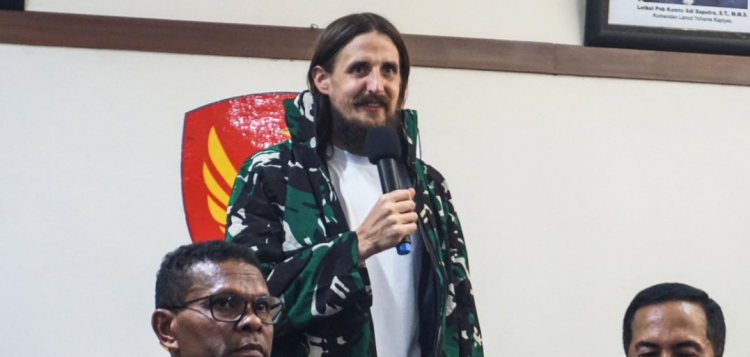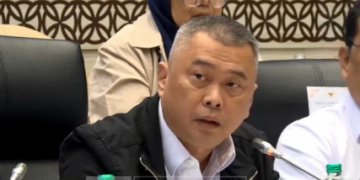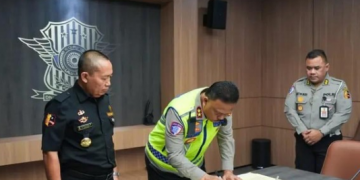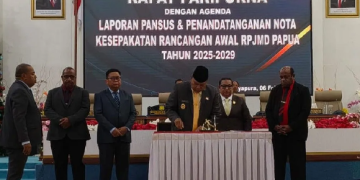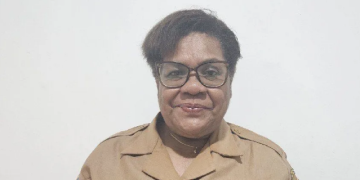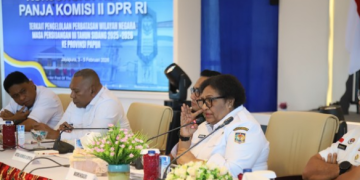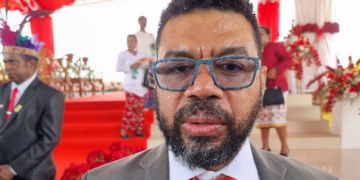PapuaAround.com – After being held captive in the Papua jungle for over a year and a half, New Zealand pilot Phillips Mehrtens was finally released on September 21, 2024. However, rather than expressing remorse, the armed group responsible acted as though they had saved him. This incident reflects the longstanding complexities of the conflict in Papua, a region rich in natural resources but plagued by ongoing security issues.
Mehrtens’ release brings immense joy to his family, including his wife, child, relatives, and close friends. Many hope that Phillips and his family can now begin to rebuild their lives with the support of multiple stakeholders, including the New Zealand government and Susi Air, where he was employed until his capture. However, the physical and psychological recovery for the 38-year-old pilot is expected to be more challenging than many may realize.
Mehrtens was abducted after his plane landed in Nduga, a known stronghold of the Free Papua Movement (OPM). The incident occurred on February 7, 2023, shortly after he dropped off his passengers and before he could pick up 15 waiting construction workers for the return trip. Before he could complete his mission, an armed group ambushed him and set fire to his plane. Nduga, located in the Papua highlands, is only accessible by air, which further complicates the situation.
From that moment, Mehrtens became a victim in a conflict that not only involved armed groups but also the government’s security-based approach to addressing the Papua issue. Many foreign pilots work for aviation companies or humanitarian missions in remote areas of Papua, areas often avoided by their Indonesian counterparts due to the challenging terrain and lack of public infrastructure.
The abduction of Mehrtens, as well as the killing of another New Zealand pilot, Glen Malcolm Conning, on August 6, 2024, allegedly by the same rebel group, highlights the dangers of working in Papua. New Zealand Foreign Minister Winston Peters described the negotiations for Mehrtens’ release as extremely tense. “We were always concerned that we might not succeed. The hardest part in an environment with no trust is establishing that trust,” Peters said. The minister worked closely with multiple stakeholders in both Jakarta and Papua to ensure Mehrtens’ safety.
Read also: Papua Coffee Festival 2024 Aims to Boost Local Industry and SMEs
New Zealand Prime Minister Christopher Luxon welcomed the release. “I appreciate everyone in Indonesia and New Zealand who supported this positive outcome for Phillips and his family,” Luxon said in a statement. Mehrtens’ release demonstrates the power of negotiation over the use of force.
During Mehrtens’ captivity, joint military and police operations were launched to track down members of the West Papua National Liberation Army (TPN-PB), the military wing of the OPM, which had taken Mehrtens hostage in Nduga. However, such operations often forced civilians to flee their homes out of fear of violence and intimidation. In 2022, the United Nations Human Rights Agency highlighted serious human rights abuses in Papua, including child killings, disappearances, torture, and mass displacement. The UN urged Indonesia to grant unrestricted humanitarian access to the region.
Low-level armed rebellion has continued in Papua, with demands for independence regularly voiced amid ongoing socioeconomic injustices. Despite Papua’s wealth of natural resources, it remains the poorest and least developed region in Indonesia. Since 2002, trillions of rupiah have been allocated to Papua through special autonomy funds, yet the province’s human development index remains the lowest in the country.
As Phillips Mehrtens reunites with his family, there is hope that the Indonesian government will promote dialogue in its efforts to establish lasting peace in Papua. Law enforcement is certainly necessary, particularly to bring those responsible for Glen Conning’s fatal attack to justice and to prevent further violence against civilians or the misuse of development funds. It is critical that justice be upheld.
The demand for independence and dissent will continue to grow in Papua if the government fails to protect its people. Like Phillips Mehrtens, the people of Papua have longed for freedom—not just from armed conflict, but also from poverty, marginalization, and discrimination.
As such, the government and other stakeholders must adopt a more humane approach to address these ongoing challenges and work toward ensuring peace and justice throughout Papua.
Source: The Jakarta Post

